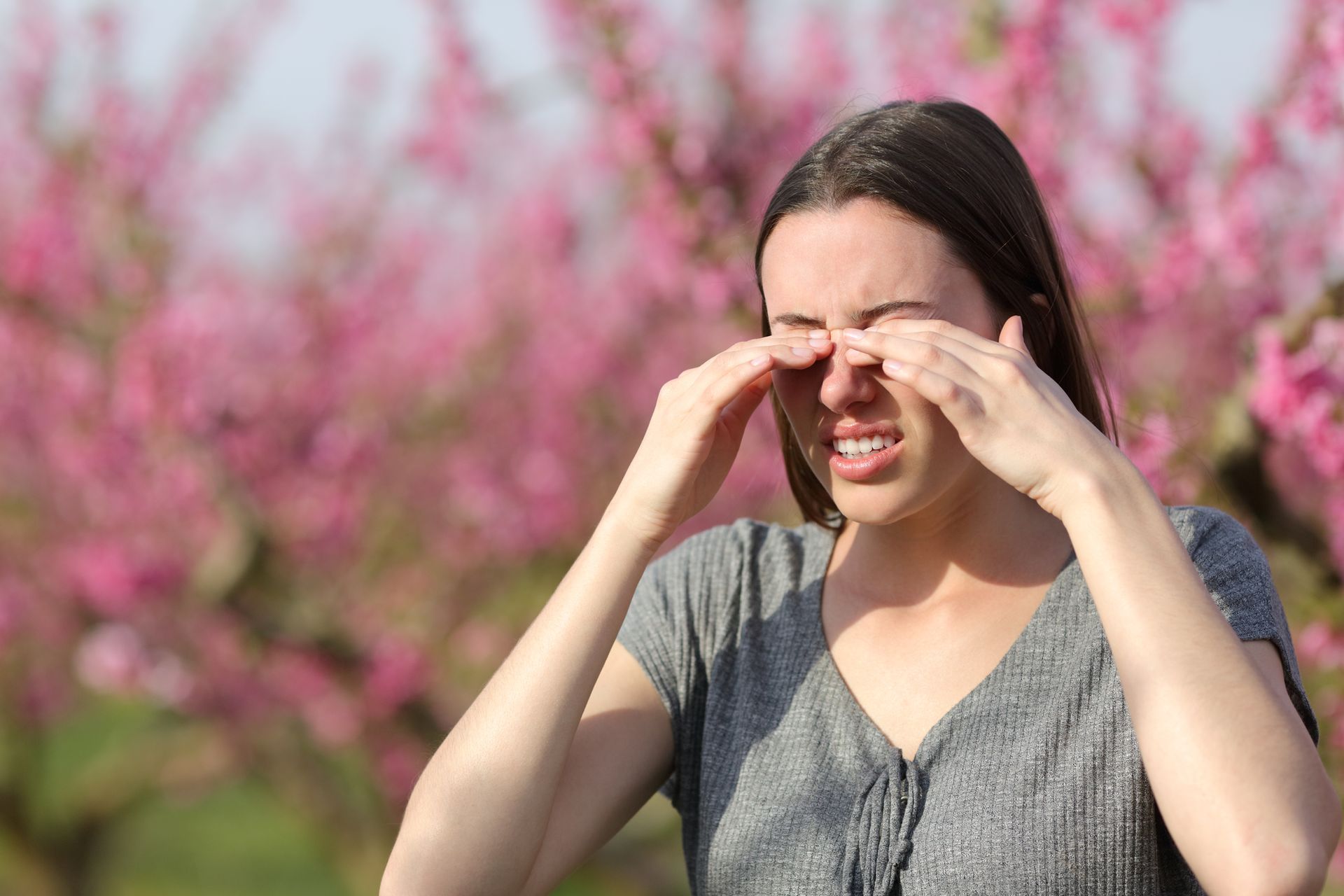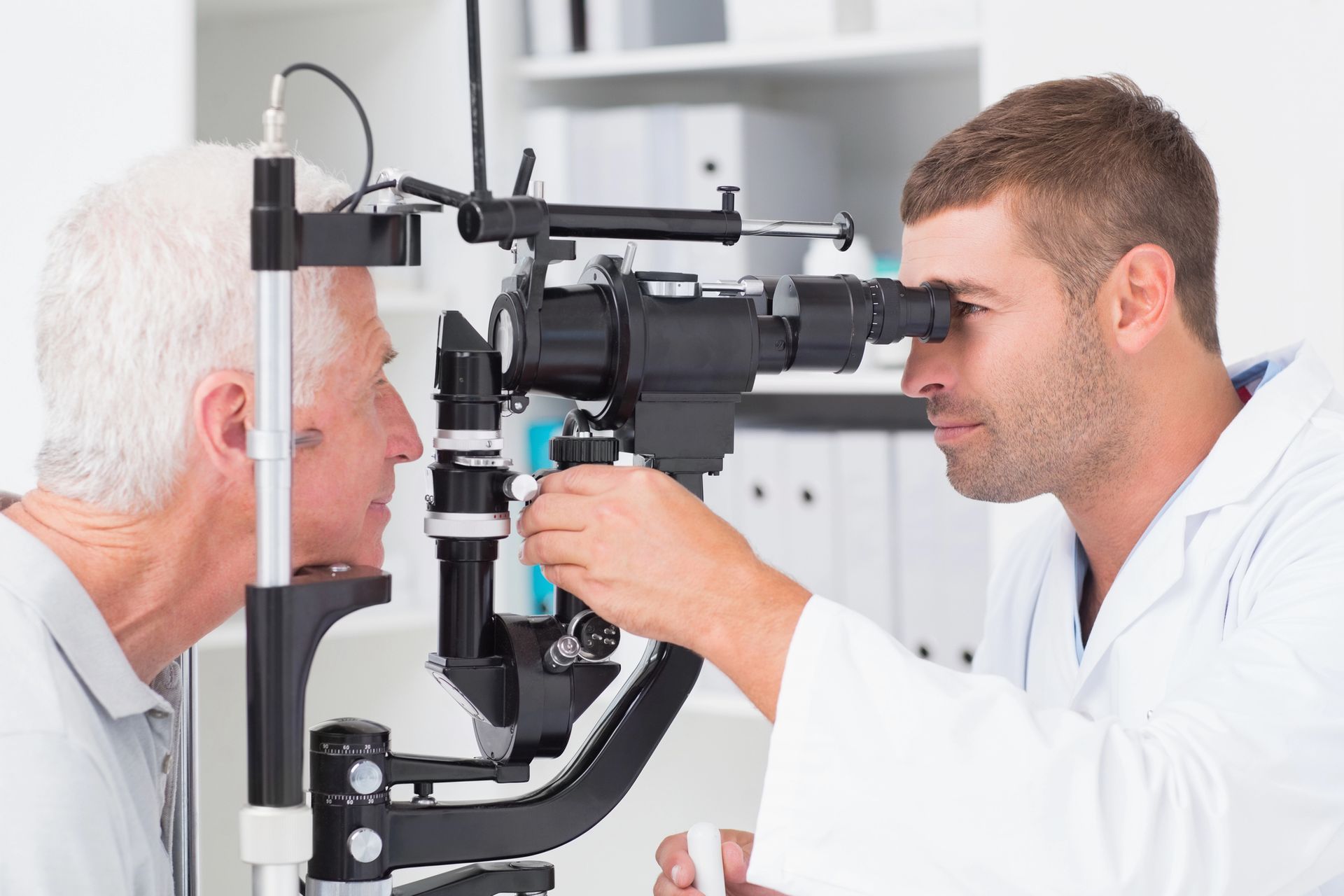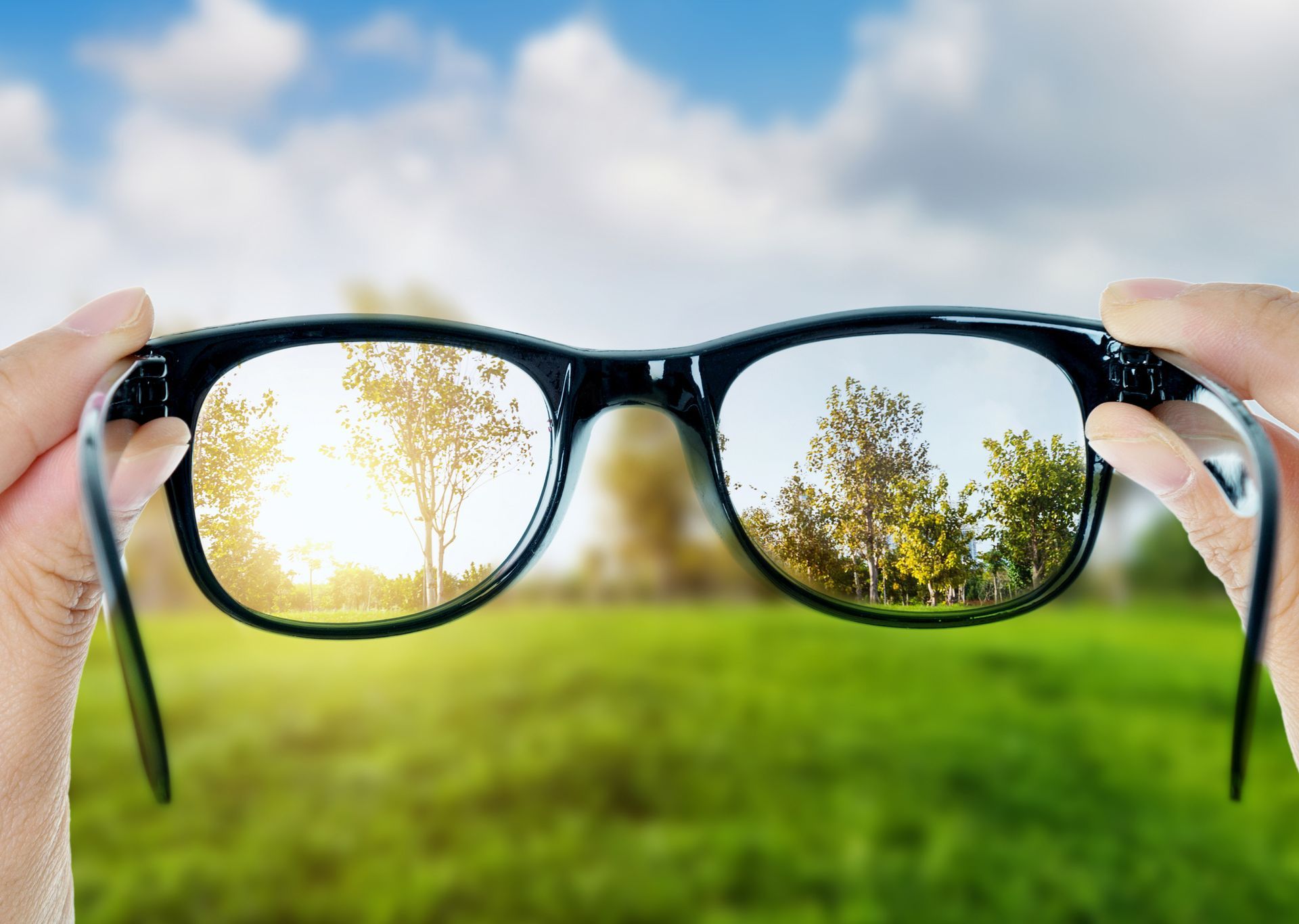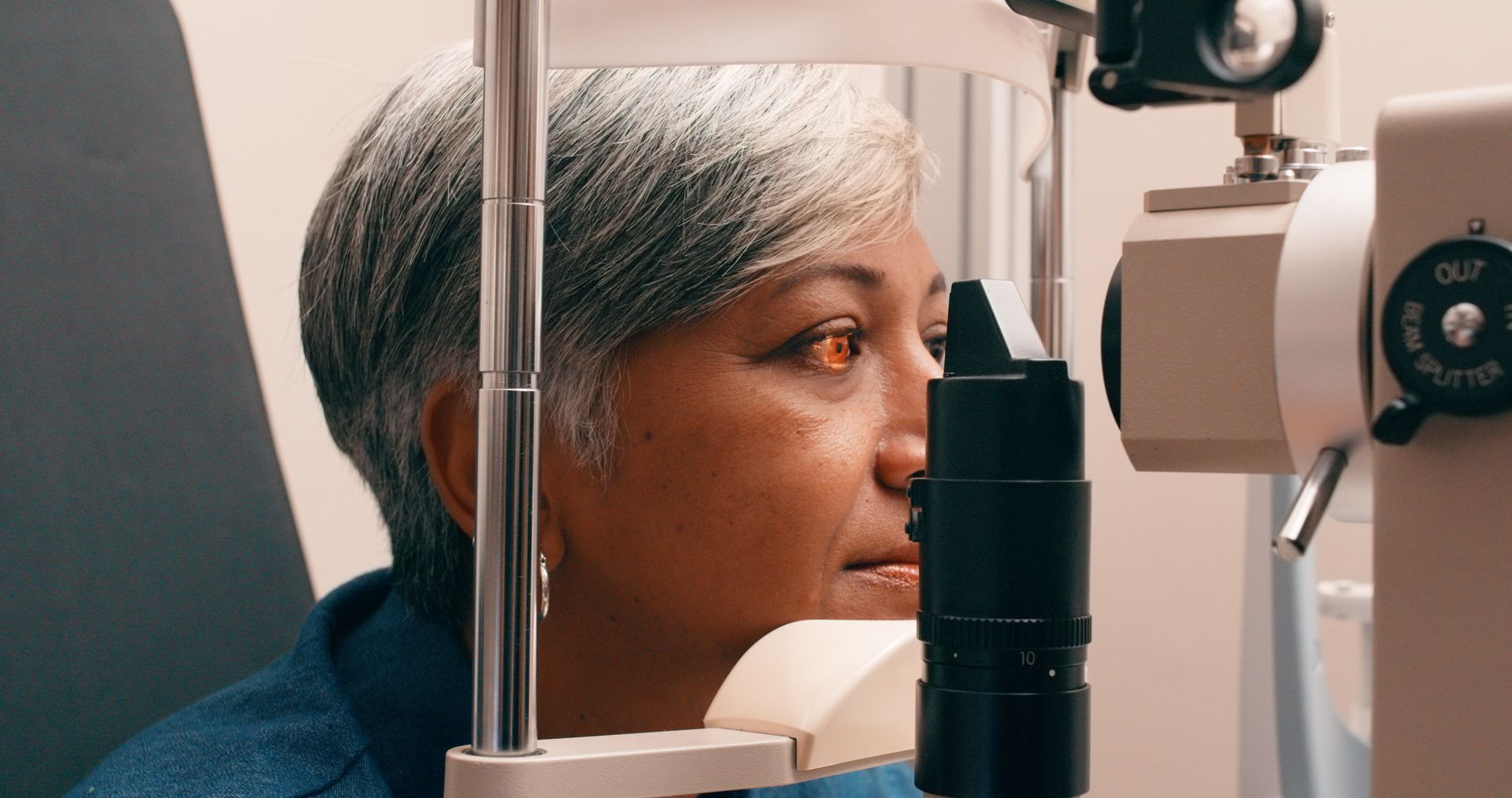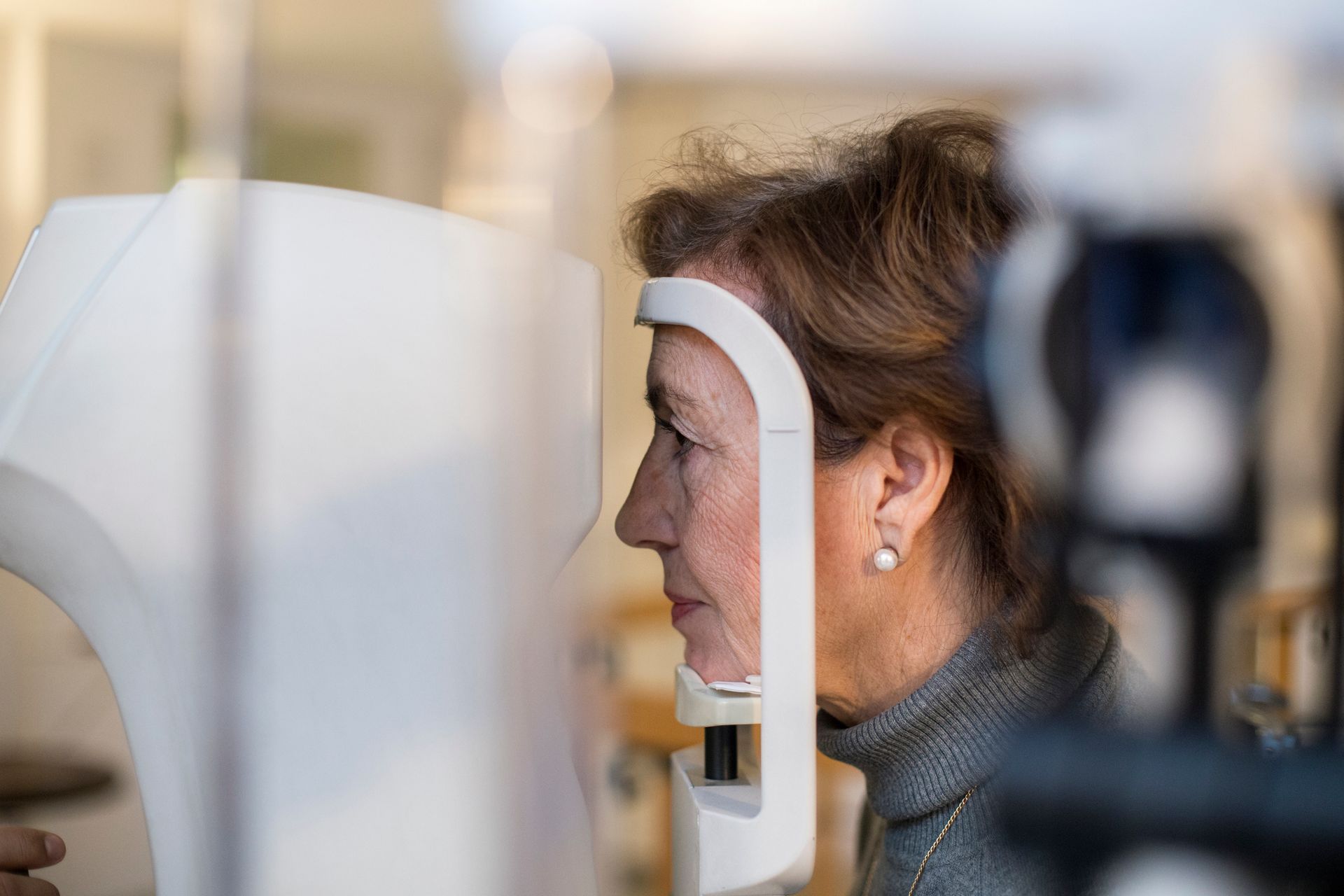Top Tips to Stay Healthy for Eyes: Boost Your Vision Naturally
Want to keep your eyes healthy for eyes? This guide explains the best practices like proper diet, exercise, regular eye exams, and daily protective steps. Learn how to keep your vision clear and eyes healthy.
Key Takeaways
- A balanced diet rich in vitamins A, C, E, omega-3 fatty acids, lutein, and zeaxanthin is essential for eye health and can prevent age-related diseases.
- Regular eye exams are crucial for early detection and management of eye diseases, contributing to the prevention of permanent vision loss.
- Implementing protective measures such as UV-blocking sunglasses, proper contact lens hygiene, and regular physical activity can significantly enhance eye health and reduce the risk of vision problems.

Importance of Nutrition for Eye Health
A balanced diet is more than just fuel for your body; it’s a powerful tool in maintaining eye health and preventing age-related eye diseases. The link between nutrition and eye health is strong, with specific nutrients playing crucial roles in supporting good vision. Omega-3 fatty acids, for instance, support the structure of cell membranes in the eyes, promoting healthy vision and reducing the risk of eye diseases. Incorporating a variety of healthy foods into your diet significantly reduces the risk of developing serious eye conditions.
A healthy diet rich in vitamins, minerals, and antioxidants plays a significant role in preventing age-related eye diseases. From reducing the risk of cataracts to slowing the progression of macular degeneration, the right nutrients are essential for keeping your eyes healthy.
We will explore the key vitamins and nutrients necessary for eye health, the best foods to include in your diet, and when supplements might be needed.
Key Vitamins and Nutrients
Vitamins and nutrients are the building blocks of eye health:
- Vitamin A: Critical for moisture retention in the eyes, preventing dry eyes and maintaining good vision. Foods rich in beta-carotene, such as carrots, are converted into vitamin A in the body, providing essential support for vision.
- Vitamin C: Found in citrus fruits, it plays a crucial role in maintaining healthy eyes and preventing the development of cataracts.
- Vitamin E: Found in foods like avocados, almonds, and sunflower seeds, it contributes to overall eye health by protecting the eyes from oxidative damage.
Apart from vitamins A, C, and E, omega-3 fatty acids are vital for retinal health. Fatty fish like salmon are excellent sources of DHA, an omega-3 fatty acid that supports the structure and function of the retina.
Lutein and zeaxanthin, two powerful antioxidants found in leafy green vegetables, are essential for protecting the eyes from harmful blue light and maintaining good vision. Ensuring a diet rich in these nutrients effectively supports your eye health and reduces the risk of vision problems.
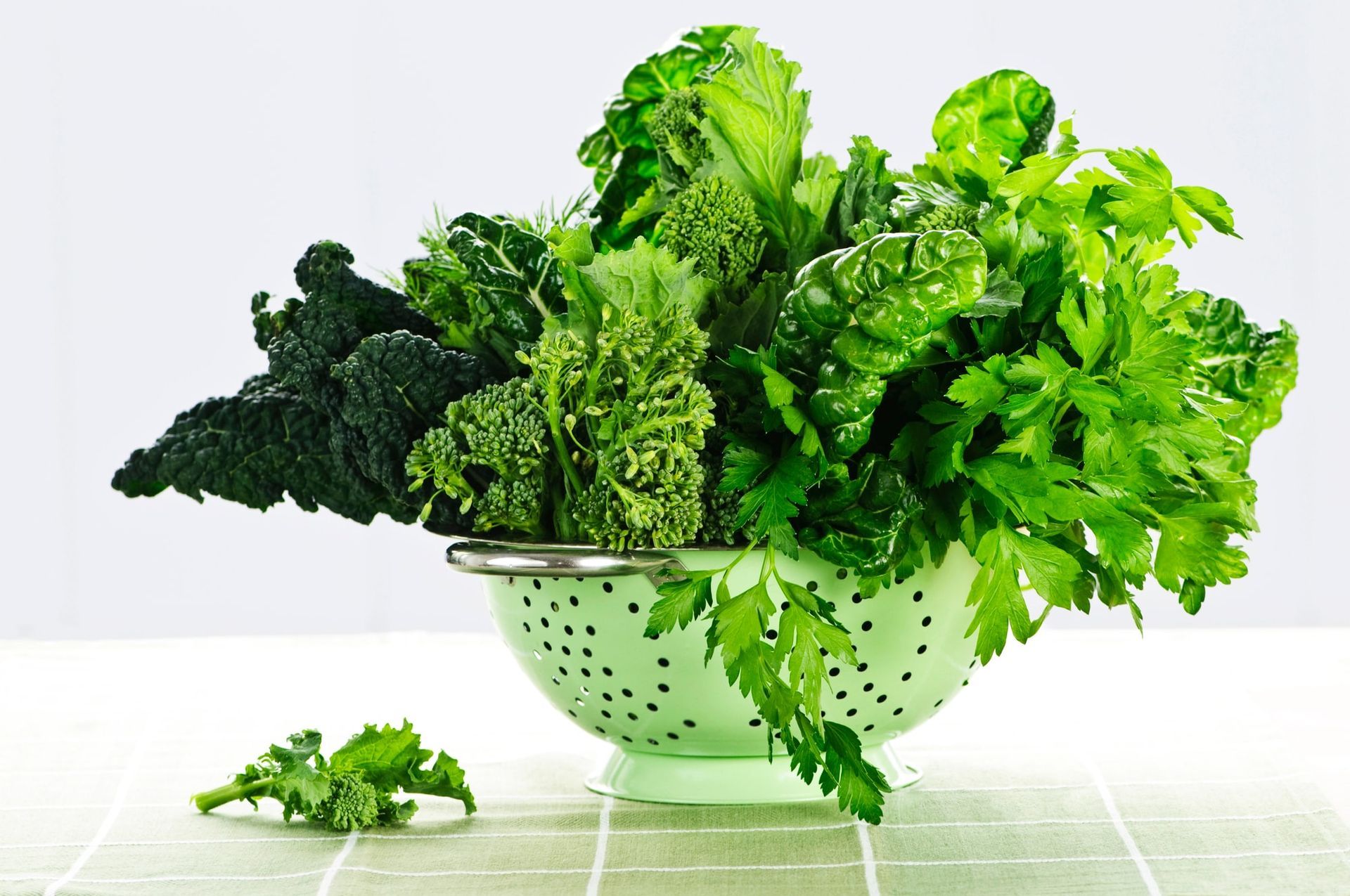
Best Foods for Eye Health
The foods you consume daily can significantly impact your eye health. Incorporating a variety of colorful fruits and vegetables into your diet can enhance vision health and reduce the risk of eye diseases. Green leafy vegetables like spinach, kale, and collard greens are rich in lutein and zeaxanthin, which are crucial for protecting the eyes from blue light and maintaining overall eye health. Sweet potatoes are another excellent choice as they provide more than 200% of the daily dose of vitamin A, essential for good vision.
Fruits, vegetables, beans, and fish are all known to be beneficial for eye health. Omega-3 fatty acids found in fatty fish, such as salmon and mackerel, support retinal health and reduce the risk of dry eyes and macular degeneration.
Including these healthy foods in your diet can help maintain your vision and protect your eyes from common eye conditions. Making these dietary choices is a proactive step towards preserving your vision health.
Supplements: When and Why?
While most Americans can get enough eye-healthy nutrients through their diet, there are instances when taking supplements is beneficial. For individuals with macular degeneration, vitamin supplements can play a crucial role in slowing the progression of the disease and maintaining vision health. Supplements can help fill nutritional gaps and provide the necessary vitamins and antioxidants needed for optimal eye health.
However, it’s always best to consult with an eye doctor before starting any supplement regimen to ensure it meets your specific needs.
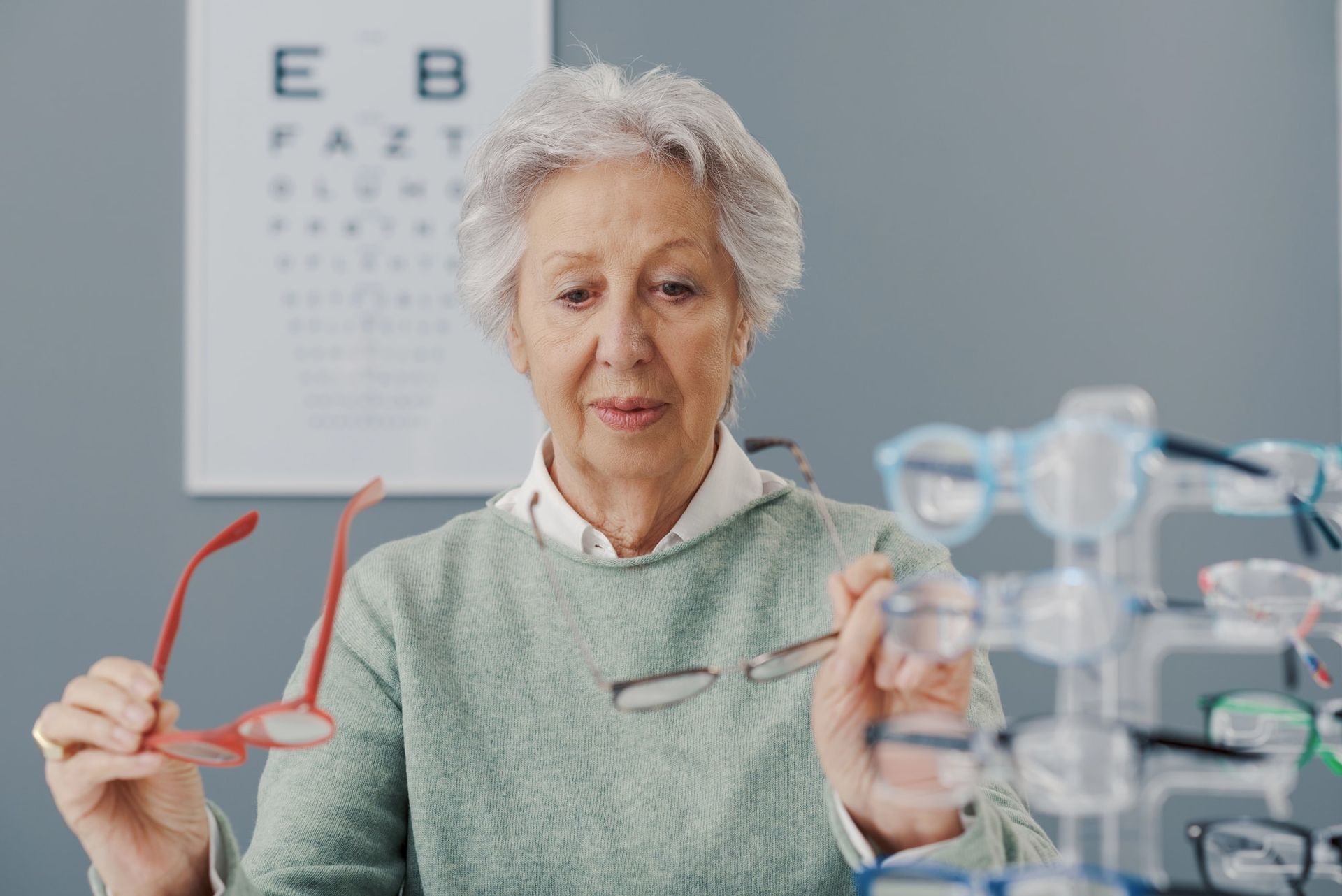
Regular Eye Exams: A Must for Healthy Eyes
Regular eye exams are a cornerstone of maintaining eye health. These exams play a crucial role in detecting eye diseases early, which allows for timely treatment to prevent vision loss. A comprehensive dilated eye exam checks for common vision problems and eye diseases, providing a thorough assessment of your eye health. Catching potential issues early allows you to take proactive steps to protect your vision and prevent permanent vision loss. Additionally, a dilated eye exam can help identify conditions that may not be apparent during a standard eye exam.
Identifying potential eye diseases at an early stage is crucial. Whether you wear contact lenses or not, regular eye exams help ensure your eyes remain healthy. We’ll delve into the different types of eye exams and the importance of early detection of eye diseases.
Types of Eye Exams
Various types of eye exams provide a comprehensive assessment of your vision health:
- A visual acuity test, commonly using a Snellen chart, assesses how well each eye can see shapes and letters from a distance.
- The visual refraction test determines if corrective lenses are needed by analyzing how light is bent as it passes through the eye.
- A visual field test evaluates both central and peripheral vision, helping to identify blind spots.
Other important eye exams include the slit-lamp examination, which allows eye doctors to closely inspect the front structures of the eye using a microscope and bright light. Intraocular pressure is measured in a glaucoma test to detect potential glaucoma, which can lead to vision loss if untreated. An eye exam is essential for maintaining overall eye health.
Ophthalmoscopy, or fundoscopy, involves dilating the pupils to provide a detailed view of the optic nerve and retina. These exams are essential for maintaining eye health and preventing vision problems.
Early Detection of Eye Diseases
Early detection through regular eye exams is crucial in managing conditions like glaucoma and preventing irreversible vision loss. Regular eye exams can reveal conditions such as cataracts, allowing for timely treatment and management. For children, early eye examinations are especially important as they can detect vision issues that could affect their development and learning.
Pediatric eye care is essential for monitoring children’s vision development and identifying potential issues early on. Early detection and treatment of vision problems in children can prevent long-term issues and improve overall visual development.
By prioritizing regular eye exams and scheduling your annual eye exam, you can take proactive steps to protect your vision health and prevent common eye diseases.
Protecting Your Eyes Daily
Protecting your eyes daily is essential to prevent vision problems and maintain overall eye health. Simple measures like wearing sunglasses with UV protection, using protective eyewear during sports or home repairs, and practicing proper contact lens hygiene can make a significant difference. UV rays from the sun can cause damage over time, making it crucial to wear sunglasses that offer UV protection.
During activities such as sports or home repairs, wearing protective eyewear is recommended to prevent eye injuries. Proper hygiene when wearing contact lenses is necessary to prevent infections and maintain eye health.
Incorporating these daily protective measures significantly reduces the risk of eye problems and protects your vision.
UV Protection
Wearing sunglasses that block 100% of UV rays can help prevent eye damage and reduce the risk of cataracts. Sunglasses should offer protection against both UVA and UVB rays to effectively safeguard eye health.
Wearing sunglasses with UV protection shields your eyes from harmful UV rays and helps maintain healthy vision.
Protective Eyewear for Activities
Incidents during sports and home repairs can lead to serious eye injury, making protective eyewear essential. Using specialized eyewear during these activities can prevent serious injuries to the eyes caused by impact or hazardous materials.
Wearing suitable goggles or face shields significantly lowers the risk of eye injuries and protects your vision; therefore, it is essential to wear protective eyewear.
Contact Lens Hygiene
To prevent eye infections when handling contact lenses:
- Maintain clean hands before handling contact lenses.
- Wash hands thoroughly before handling contact lenses.
- Clean contact lenses with the recommended solutions.
- Replace contact lenses as directed.
Regularly replacing contact lens cases and using fresh solution each time can help prevent serious eye infections.
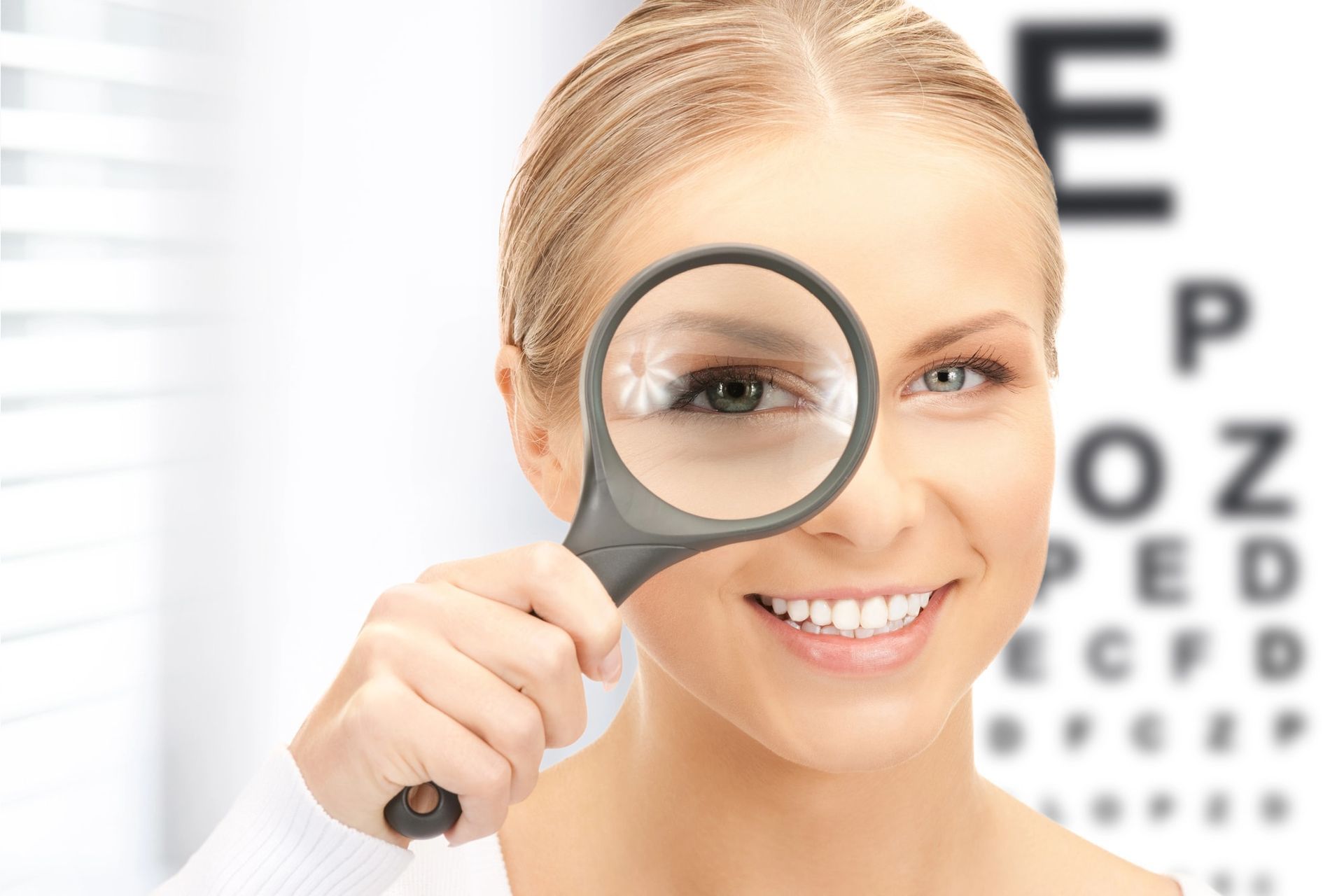
Lifestyle Choices for Better Vision
Adopting healthy habits can have a positive effect on maintaining good vision. Making healthier lifestyle choices can lead to significant improvements in eye health. From quitting smoking to staying active and managing chronic conditions, these daily habits can enhance your vision and protect your eyes from common eye diseases.
Regularly taking breaks from screens can help reduce eye strain and fatigue. Ensuring proper lighting and practicing good visual hygiene can significantly enhance eye comfort.
In the following sections, we’ll explore the benefits of quitting smoking, staying active, and managing chronic conditions for better vision.
Quit Smoking
Ceasing tobacco use can lower the chances of developing serious eye conditions like glaucoma and cataracts. Smoking is linked to multiple eye problems, including dry eyes and age-related macular degeneration. The harmful chemicals in cigarettes can damage blood vessels in the eyes, leading to reduced oxygen and nutrient supply.
Quitting smoking may help alleviate symptoms of dry eye by reducing irritation caused by tobacco smoke. Smokers have a significantly higher risk of developing vision loss compared to non-smokers due to the impact of smoking on eye health.
Stay Active and Maintain a Healthy Weight
Regular exercise is a significant lifestyle factor that can benefit eye health. Exercise increases blood and nutrient flow to the eyes and reduces oxidative stress. Maintaining a healthy weight through regular exercise can help reduce the risk of vision problems and improve overall health.
Staying active and maintaining a healthy weight supports vision health and reduces the risk of eye diseases in life.
Manage Chronic Conditions
Comprehensive eye exams can identify conditions such as high blood pressure and diabetes, which may not show symptoms initially. Certain eye exams can detect serious health conditions like high blood pressure and diabetes before they manifest symptoms.
Controlling chronic health issues, such as diabetes and hypertension, is crucial to prevent associated eye complications, including diabetic retinopathy. Effective management of diabetes and hypertension can significantly lower the risk of eye diseases.
Physical activity can enhance overall health and diminish the chances of developing diabetes and high blood pressure.

Understanding Common Eye Conditions
Understanding common eye conditions is essential for taking preventive measures and seeking timely treatment. Conditions like refractive errors, diabetes-related issues, and high blood pressure-related eye problems can lead to vision loss or blindness. Health conditions such as diabetes and high blood pressure can significantly affect your eyes, making regular monitoring and management crucial for preventing eye disease.
Regularly wearing sunglasses that block UV rays can significantly lower the risk of developing cataracts and macular degeneration. Consistently following safety measures can significantly reduce the risk of eye injuries and long-term vision problems.
Maintaining eye health through preventive measures reduces the risk of common eye conditions and protects your vision.
Age Related Macular Degeneration
Age-related macular degeneration primarily affects central vision, making it difficult to see fine details. This condition is more prevalent in older adults over 50 and can manifest in two forms: wet and dry. The dry form is characterized by slow vision loss due to yellow deposits known as drusen. Smoking is associated with a higher risk of eye diseases, including age-related macular degeneration, age related eye disease, and cataracts, particularly affecting the central part of vision.
Antioxidant supplements may help reduce the progression in individuals with early signs of age-related macular degeneration.
Maintaining a healthy weight can reduce the risk of developing eye conditions related to obesity. Understanding the risk factors and taking preventive measures helps protect your central vision from age-related macular degeneration.
Cataracts
Cataracts occur when the lens of the eye becomes cloudy, leading to blurred vision and difficulty seeing at night. Smoking is linked to an increased risk of developing cataracts and age-related macular degeneration. The most common treatment for cataracts is surgical removal of the cloudy lens, often replaced with an artificial lens. This laser surgery is highly effective and can significantly improve vision.
Vitamin C is a potent antioxidant that helps reduce the risk of cataracts and age-related macular degeneration. Incorporating foods rich in vitamin C and avoiding smoking reduces the risk of developing cataracts. Understanding the symptoms and treatment options for cataracts can help you seek timely medical intervention and protect your vision.
Glaucoma
Glaucoma is a group of eye conditions that cause damage to the optic nerve, often associated with increased eye pressure. This condition can gradually damage the optic nerve, often without noticeable symptoms until significant vision loss occurs. Early detection and treatment of glaucoma are crucial to prevent irreversible vision loss. Regular eye exams are essential for monitoring eye pressure and detecting glaucoma early.
Engaging in regular physical activity can lower the likelihood of developing glaucoma. Staying active and maintaining regular eye check-ups helps reduce the risk of glaucoma and protects your optic nerve from damage. Understanding the importance of early detection and treatment can help you manage this condition effectively.
Summary
Maintaining eye health is a multifaceted approach that includes proper nutrition, regular eye exams, daily protective measures, and healthy lifestyle choices. By incorporating these practices, you can significantly reduce the risk of vision loss and protect your eyes from common eye diseases. At Pro Optical, we are committed to providing comprehensive eye care services to help you maintain good vision and overall eye health. Schedule an eye exam today and take the first step towards better vision health.
Frequently Asked Questions
How often should I get an eye exam?
You should get an eye exam annually to identify potential issues early and ensure your overall eye health. Regular check-ups are essential for maintaining good vision.
What foods are beneficial for eye health?
To promote eye health, incorporate foods high in vitamins A, C, E, omega-3 fatty acids, lutein, and zeaxanthin, such as carrots, citrus fruits, leafy greens, and fatty fish into your diet. These nutrients play a crucial role in maintaining good vision and preventing eye-related issues.
Why is UV protection important for my eyes?
UV protection is essential because it shields your eyes from harmful UV rays that can cause serious conditions like cataracts and macular degeneration. Prioritizing UV protection will help maintain your eye health in the long run.
How can I protect my eyes while playing sports?
To protect your eyes while playing sports, wear specialized protective eyewear designed for your specific activity. This simple measure can significantly reduce the risk of serious eye injuries and safeguard your vision.



